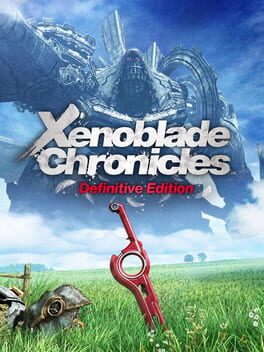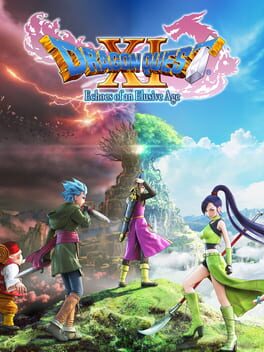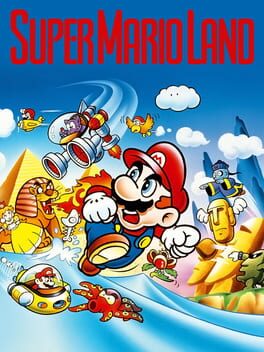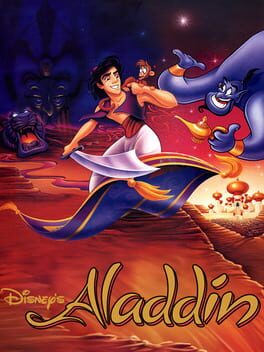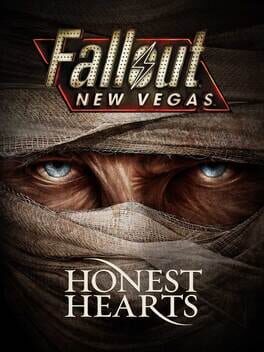Steinco
BACKER
Nothing here!
Badges

Treasured
Gained 750+ total review likes

Famous
Gained 100+ followers

Adored
Gained 300+ total review likes

Trend Setter
Gained 50+ followers

Pinged
Mentioned by another user

GOTY '23
Participated in the 2023 Game of the Year Event

Loved
Gained 100+ total review likes

Well Written
Gained 10+ likes on a single review

Donor
Liked 50+ reviews / lists

Popular
Gained 15+ followers

GOTY '22
Participated in the 2022 Game of the Year Event

Gone Gold
Received 5+ likes on a review while featured on the front page

Best Friends
Become mutual friends with at least 3 others

Roadtrip
Voted for at least 3 features on the roadmap

3 Years of Service
Being part of the Backloggd community for 3 years

Liked
Gained 10+ total review likes
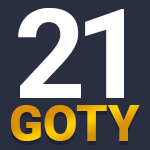
GOTY '21
Participated in the 2021 Game of the Year Event

On Schedule
Journaled games once a day for a week straight

Elite Gamer
Played 500+ games

Noticed
Gained 3+ followers

Gamer
Played 250+ games

N00b
Played 100+ games
Favorite Games
627
Total Games Played
015
Played in 2024
284
Games Backloggd
Recently Played See More
Recently Reviewed See More
Quent's review of The Legend of Zelda
NOWITSREYNTIME's review of The Legend of Zelda
I will be adding the other reviews once they become available.
Allow me to reminisce a bit first.
I first played a version of this game on my brother's PC sometime in the 90's probably. Much later I found out that I played the SatellaView version. I played a bit of this game as part of the Zelda Collection for GameCube. After that I bought the GBA version. I never got remotely far in any of my playthroughs but I did have a good time with trying to progress. But in all of my playthroughs, the cryptic nature of the game got the better of me. I almost never want to make use of guides for videogames because 'getting stuck' in a videogame is part of the fun for me.
The game starts and we're greeted by a pretty spiffy title screen. The logo is bright and colorful and beneath there's a waterfall going down, very cool. It's accompanied by the first rendition of the Legend of Zelda theme, of course the most iconic piece of music in the entire franchise. There's a title crawl that explains the story, really helpful. We're basically out to save the princess from the big bad.
Fun fact, Nintendo originally wanted to use Maurice Ravel's Bolero for the title screen but found out rather late in development that this music piece was not in the public domain yet. If they wanted to include it they had to wait an entire month to release the game and that wasn't happening so the composer basically pulled an all-nighter and churned out this gem of a theme song.
So we push start, pick a save file, name our character and we're off to the races. We're thrust into the land of Hyrule. We can go left, right or up but there's also a cave we can enter. Of course we enter the cave. We get the sword from the old man but we have to keep it a secret.
And now we go! The game begins! Go save the princess! Just do it! Where do we go? Figure it out!
So unless you know what you're doing or are playing this game with the help of a guide, you're lost. You have a big open world to explore, in the top left corner there's a map that basically tells you nothing except where you precisely are in the world. There are 8 dungeons, called levels in this game, all of them have a number so there's a way to tackle them chronologically. There are plentiful secrets in this game, a select few Heart Containers to find to expand your health, Warp Points, rupee stashes etc. But alas unless you have a guide you'll probably won't be able to find these goodies. Most of these collectables are hidden in walls that you have to bomb or underneath bushes (or are they trees?) that you have to burn but there are little to no contextual clues in the game as to which bushes or walls you have to burn or bomb respectively.
That is not to say that the developers didn't at least try. Sometimes rocks or statues with staircases beneath them that are conspicuously placed in a way that beg you to explore a bit.
Sure there are lot of instances of "how the hell was I supposed to figure that out by myself". But it's important to not get lost in these feelings of frustration. The first Legend of Zelda has a lot more to offer the player than simply granting them a glimpse of a bygone era in gaming or being viewed as a crusty old time capsule of a popular franchise. For a game that is so old, difficult and to be frank, obtuse, it still offers a sense of childlike wonder and curiosity. It's also the introduction of classic Zelda's addictive gameplay, something we'll discuss further in a bit.
It's important to mention that the developers were onto something here with this level of exploration but it would take a couple of years and a brand new console before these ideas would come into fruition in The Legend of Zelda: A Link to the Past for the Super Nintendo.
So by now I think I've made it clear that you need a guide in order to progress and finish this game. It's a "guide game" but not necessarily in the derogatory sense. Back when this game came out, they had old-fashioned guides and manuals to help players with this game. It's basically a part of the experience so there's no shame in using a guide. The videogame 'Tunic' tries to drive this point home by being a game that's clearly being inspired by The Legend of Zelda and you have to collect pieces of a manual in order to make sense of the game's rather cryptic nature.
If we're talking about gameplay, it's the first time we're introduced to the Zelda-formula. Explore the land, tackle dungeons, collect items which you can use for combat and/or explore. The whole world is basically at your feet but the more upgrades you collect, the more the world opens up to you. It's a really fun gameplay-loop and it remains incredibly satisfying to progress despite the fact that the game is showing its age.
Of course we have enemies to fight. The main attack you have is a forward stab, enemies are sometimes quick, nimble and unpredictable so be careful when and how you attack. There's quite a bit of delay between attacks so every sword stab matters more than you think. You can acquire a lot of upgrades like extra Hearts so you can take more hits, better armor, deadlier swords and health potions. Even though these are optional, you're going to need these, trust me.
You really need to prepare for the journey or else, get ready to get your shit kicked in. By the time you've reached Level 6 the game doesn't fuck around anymore. Enemies begin to swarm you in large numbers and hit like trucks. The game starts nice and easy before becoming absolutely relentless in its difficulty. Maybe I'm not a True Gamer™ but these difficulty spikes really threw me for a loop for some reason. It's to be expected of course, it's a game from 1987 and videogames were extremely difficult back then, be it for the sake of padding the game for home consoles or for gobbling up your quarters in the arcade. Anyways, read the guide and get these upgrades as soon as they become available.
As for the music, what's there to say, it's all so iconic. We got the title theme, the overworld theme, the treasure jingle, sound effects and compositions that are still being used to this day in Zelda games. Yeah it's archaic, sure, but it still manages to set itself apart from other NES soundtracks and you really get the feeling that you're setting off on a grand ol' adventure.
Would I recommend this game to any? Not necessarily, unless you have an interest in the Zelda-franchise and want to discover its history. Maybe you have an interest in game design and you want to know how things worked back in the day. Maybe you like the idea of working through a game with a guide or maybe by other means, like playing this game with friends and working through it thanks to each other's help.
For me personally, I always wanted to finish the first game of a franchise that I absolutely adore. And this marathon gave me plenty of reason to finally do it. And I'm glad I did but I'm also content that it's finally over. Now unto another game I tried multiple times but never finished: Zelda II: The Adventure of Link!
(I'm going to be so fucking relieved when we get to Link to the Past.)
It's not really hard when you get used to Mario's weird physics and it's not a particularly long game either. It's fun to experience a Mario game back when the franchise didn't any conventions that were set in stone.
The Koopas explode. The star jingle is now Offenbach's Can Can. To be fair Nintendo used classical music for other releases like Tetris. It was a thing you could do and nobody would bat an eye.
Go play it if you have half an hour to burn or something.
Majora's Mask is a game which I consider to be a genuine masterpiece, one last hurrah for the N64-era of Zelda games.
It is a game where the mechanics tell the bulk of its story and themes, accompanied with a haunting soundtrack that has never left my frontal temporal lobe ever since I first played this game in the year 2000.
It's jam-packed with interesting story ideas bringing forth a vibe that is like nothing I've ever experienced before or probably will ever experience again. It's evidently a depressing game with a profound tinge of melancholy and deep, almost neverending sadness. And I'm still debating myself whether all of this was intentional or just the result of a string of random circumstances.
So let me unpack all of this just to get a sense of what I'm talking about.
BE WARNED THIS REVIEW CONTAINS SPOILERS.
The Legend of Zelda: Majora's Mask is the direct sequel to The Legend of Zelda: Ocarina of Time, widely considered to be one of the best games of all time, if not the best game of all time. It is a seminal piece of work, one of the biggest adventure games in 3D-gaming at the time. It set the standard of what an adventure game should be and how things like exploration and combat should work in a 3D-space. It inspired a lot of games for decades to come and it's still revered to this day.
So Nintendo had big shoes to fill for the eventual sequel. And what they came up with was lightning in a bottle, a sequel that retained a lot of elements from Ocarina but deviated rather drastically in terms of structure, scale and atmosphere.
In the beginning of the game Link gets ambushed by a creature known as Skull Kid wearing the eponymous Majora's Mask. They are accompanied by two fairies, Tatl and Tael. They steal Epona, the horse we rode on and our precious ocarina of time. As Link gives chase, he falls into a hole. Skull Kid is waiting for Link and he changes him into a Deku Scrub. Skull Kid flees, Tael follows them but Tatl gets left behind with Link.
Together they venture forth and they come across an odd tree-like figure with a face.
It looks like the lifeless corpse of a Deku Scrub. The creature looks sad, almost as if it's been through a great deal of pain and agony. As a sidenote, this becomes really important later. It also sets the tone right away and the game doesn't shy away from injecting a lot of heavy themes and messages into the story.
After a while they come across The Happy Masked Salesman, an individual who will be familiar if you've played Ocarina of Time and this is where he will utter the game's most recognized quote:
"You've met with a terrible fate, haven't you?"
He's now a central character to the plot of this game and acts drastically different than in Ocarina of Time.
Now he's a tad unhinged and a bit menacing. He begs Link to retrieve Majora's Mask, the mask that Skull Kid is wearing. Skull Kid stole the mask from him and he warns Link that the mask is incredibly dangerous and is capable of inflicting a lot of damage to the world and its people. He can also help Link get rid of his transformation if he retrieves his ocarina. But Link only has three days time. After that, the moon crashes into the world killing everything and everyone. The game ends.
And thus Link sets foot in Clock Town, the largest city in Termina and the game finally begins.
Link can't use his sword, people are kinda racist against him and he cannot leave town because the guards view him as a defenseless child.
You as the player know that that's not true, you've proven yourself in the previous game to be more than capable of defending yourself. But the people only look at the mask. Not what's behind it.
Eventually Link retrieves the ocarina of time just before the moon crashes. You reset the timeline and everything goes back to the way it was, right before you enter Clock Town. The Happy Mask Salesman teaches Link the Song of Healing and he turns back to his human self. You obtain the Deku Mask and you can turn back into a Deku Scrub whenever you want. From there you're tasked to travel to the four corners of the earth to find the Gods to help you put a stop to Skull Kid. Or more fittingly, put a stop to Majora's Mask.
That's the basic plot of the story. But everything gets much deeper than that.
From what I remember when this game came out, I get the feeling that it was liked by some but hated by others. For some it deviated too far from the established formula and forced players to play by pretty stringent rules. There is a three day time limit and everything in the game unfolds by a strict schedule. Things happen or don't happen depending on your actions. People move and according to set schedule and you can interact with NPC's in certain ways to influence their actions thus changing the flow of time. When three days have passed according to the in-game clock, your time is up and you have to "reset the timeline", bringing you back to square one. Everything you did will be undone. It is like you were never there to begin with. Everything and everyone lives on borrowed time in this world.
Saving the game is now a rather elaborate affair. What was once a quick and painless push of a button to save your game is now a game mechanic. You can only, truly, save your game when you play "The Song of Time" and resetting the timeline, basically undoing all your progress. You can, however, save at certain Owl Statues but be warned that this is only a temporary quicksave. If you quit after you've saved at said owl statue, the game starts right after your last time reset.
There are also only four real mainline dungeons, probably the fewest in any Zelda game although I'd argue there are a few mini-dungeons sprinkled in. Some people also took issue with the fact that you're playing as Kid Link and not his adult counterpart.
In some sense, you can view these rules and restrictions as a detriment to the game. Every problem you fixed gets undone.
In truth, they are the game's biggest strength. Every action you take or don't take has its varying degrees of consequences. Almost every character has a name, a story to tell and have relations to other characters in the game. With this the game can differentiate its numerous NPC's and give them real purpose. You really start to feel for these people. The focus of the game isn't to save the princess like the game's predecessors. It is to save the world and its people. This is also where the masks come into focus.
A new set of collectable items in this game are the masks. There were masks in Ocarina of Time but they were only there for a short sidequest. There are three (technically four but I'm not opening the can of worms called "Fierce Deity Mask") that allow you to turn into other characters. There's the aforementioned "Deku Mask" but we also have the "Zora Mask" and "Goron Mask".
As alluded to before, these masks contain the spirits of people who lived and died in the land of Termina. Darmani was a Goron who lived in Snowhead, revered as a hero but died prematurely when he tried to save his people from a calamity. Mikau was a Zora, a guitarist for a music group who died while trying to rescue the eggs of the group's singer Lulu. You play the "Healing Song" to ease their burden and heal their sorrow.
But their work is not done. It is sad to say but they failed in their mission. And now it is your turn to carry on their legacy. The people from their respective habitats look at you as if you are Mikau or Darmani. But you're not. You're just masquerading as them.
Who's the Deku Scrub you might ask? Well we never learn his name. But later in the game there are clues to his identity if you're willing to commit to one of the many sidequests the game has to offer.
To me, this Majora's Mask bread and butter. The ability to tie its story into the gameplay. We can find various themes in this game like identity, dealing with mortality, existentialism. What would you do when faced with the end of the world? Would you help other people? Would you run? Cower? Every character deals with this in a certain way. And it's all tied to their distinct personalities.
These aforementioned masks are not the only ones you can collect. There are a plethora of other masks, each with their varying functionality. There's the returning "Bunny Hood" that lets you run faster, there's the "Bomb Mask" which detonates basically used as a standard bomb and thus blowing yourself up. Some masks are just used once just to collect a Heart Piece. With the exception of the transformation masks, the other masks are a bit underutilized. In some instances you have to do a lot of sidequesting to obtain them and after that, most of them only have a one time use, in most cases to collect a Heart Piece.
So I've extensively written about the story and what makes it so good, what about the gameplay?
It's about the same as Ocarina of Time, you travel the land, collect a key item at the end of the dungeon that you will need to complete the game. It's that typical satisfying Zelda formula of collecting items in order to progress to the next area or unlock upgrades from previously visited areas. To be honest, there is not a lot to talk about here.
The game has some interesting dungeons, most of them will rack your brain more than in Ocarina of Time. Take the second dungeon for example, Snowhead. You have to progress vertically via several rooms all situated around a giant ice pillar. You have to increase or decrease the size of the pillar to progress. The bosses are mostly fought with the masks you use to transform yourself into the other species. It's a unique deviation of the Zelda formula where you would normally fight a boss with the item you obtained in the dungeon.
There are four unique areas ranging from a swamp, a snowy mountain, an oceanside and an area that's filled with ghosts, mummies and zombies. It's all very intriguing and unique.
Let us not forget about the music. The music sets the tone for every location and situation perfectly. Take for example, Clock Town's theme. On the first day, the music encapsulates the mood of a large bustling town with a lot of things to do. People are getting ready for a festival, it's upbeat and lively. As the days go by however, the music gets more frantic, there's a sense of foreboding, the atmosphere gets more dark and gloomy as the moon inches closer and closer to the world. The Song of Healing is maybe one of the most haunting melodies ever composed, an achievement considering it's such a simple melody. The Deku Palace theme is also one of my favorites, perfectly encapsulating the mood of a kingdom in disarray.
If you get the sense that I'm gushing more about this game than critiqueing it then I guess your right. I love this game. Are there flaws? Yes plenty. Most of which are a product of their time, wonky camera-controls, low framerate. But I can't help myself. I just love this game so much.
If you want to play Majora's Mask, you can't fail with the original of course, playable on the Switch NSO. You can play the remake on 3DS, but it changes a lot about the game and I would personally not recommend to play the remake as your first playthrough. I would recommend that excellent Recompilation. It runs at 60FPS, looks incredible, there's widescreen support and there is a fully functioning 3D-camera. It's an incredible achievement.
